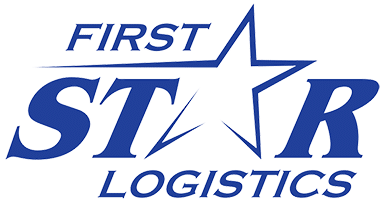There are countless acronyms in the freight logistics industry…3PL vs. 4PL, B/L, QVW, LTL vs. FTL, and more. If you are involved in the logistics industry in any way, it is crucial to be familiar with the terminology. For instance, if you are a shipper, you must know how to talk about and search for what you need. If you are beginning a career as a freight broker, agent, or carrier, learning the industry’s ins and outs is essential.
In this guide, we answer the questions, “what is LTL shipping?” and “what is FTL shipping?” It may seem small when only one letter distinguishes LTL and FTL, but knowing LTL vs. LTL shipping is necessary. If you are new to the industry, don’t worry, we will catch you up to speed. This guide explains LTL and FTL shipping, highlights the differences, and explains when to use each approach.
What is LTL shipping?
LTL stands for less-than-truckload, which refers to shipments in which the cargo does not fill the truck. There are many cases when a load may leave space in a trailer. Rather than finding additional loads to fill a car, the LTL approach involves completing the haul with a partially filled truck. This approach to freight logistics can save time because shippers and carriers do not have to wait to fill the load or make extra stops to pick up additional cargo, and it also means the load is not handled during the journey. However, the downside to LTL is that it is not the most efficient use of fuel, time, or money.
What is FTL shipping?
FTL stands for full truckload and refers to shipments that fill up the truck completely, either with single or multiple loads. Accomplishing FTL shipping involves luck or advanced coordination to find loads that physically fit well together in a truck and also happen to be going to and from nearby locations. This approach can be difficult and time-consuming to coordinate because not all types of cargo can travel together, not all shippers are okay with the truck being opened multiple times along the route, and some shipments may have too strict timelines to accommodate numerous loads. However, when FTL can be arranged, it is beneficial because it is environmentally friendly and cost-effective.
Key Differences Between LTL vs. FTL Shipping
Several factors differentiate LTL vs. FTL shipping. Here are a few:
- Weight Limits: LTL accommodates freight weighing 150 to 150,000 pounds. FTL accommodates loads that weigh more than 150,000 pounds.
- The number of palettes: LTL is ideal for loads of up to 10 palettes. FTL is suitable for loads that consist of more than 10 palettes.
- Type of Cargo: LTL is best suited for sturdy, tightly packed cargo because cargo is in the truck with other loads and may be handled throughout the haul. FTL is best suited for fragile and expensive cargo because the lack of handling minimizes the risk of theft or damage.
- Speed: LTL may take longer due to stops to pick up and unload cargo. FTL is typically faster because the truck does not have to wait to fill or make stops to load and unload multiple batches of cargo.
- Type of Journey – LTL involves direct shipping. FTL involves multiple stops.
When To Use LTL vs. FTL Shipping
Here are three factors to consider when deciding between LTL vs. FTL shipping.
- The volume of the Shipment – If the volume of your cargo fills a truck, FTL shipping is the obvious choice. If your cargo volume does not fill up a truck, evaluate the following factors.
- Type of Cargo – Opt for FTL shipping if the cargo is fragile or expensive. If the cargo is sturdy and easy to transport, consider LTL and evaluate the following factor.
- Timeline – Opt for FTL shipping if the cargo needs to ship on a specific timeline. If the timeline is flexible, LTL shipping may be the best option.
First Star Logistics Freight Brokerage
First Star Logistics is a unique asset-based global brokerage company with over 60 years of experience. We take great pride in meeting the needs of our customers, carriers, brokers, and agents. For our customers, we understand that efficiency, safety, and reliability are crucial. We use fast, cutting-edge technology to ensure a satisfactory experience with our specialized shipping services. We support our carriers with the technology, management, resources, and support they need to ensure safe, on-time delivery for both FTL and LTL shipments. We provide our agents and brokers with a dedicated management team and proprietary software that empowers our employees to succeed.
To work with First Star Logistics, contact us today!



